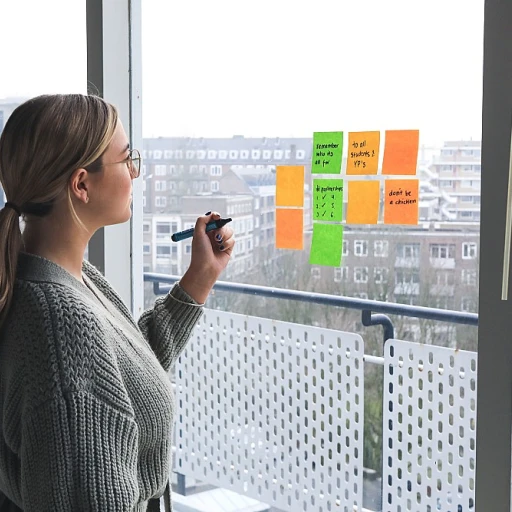
Understanding Client Portals
Exploring the Essence of Client Portals
In the dynamic world of marketing agencies, client portals have emerged as indispensable tools for enhancing client interactions. These digital platforms serve as a bridge between agencies and their clients, offering a centralized hub for communication, project management, and service delivery. By providing clients with real-time access to project updates, billing information, and key features, client portals streamline the entire client-agency relationship.
Client portals are essentially software solutions that enable marketing agencies to manage their client interactions more efficiently. They offer a suite of features, including task management, time tracking, and reporting tools, all designed to enhance the client experience. With the ability to customize these portals, agencies can tailor the platform to meet the specific needs of their clients, ensuring a personalized service that fosters trust and satisfaction.
One of the standout features of client portals is their ability to integrate with existing tools such as Google Drive, allowing for seamless document sharing and collaboration. This integration not only enhances project management but also ensures that all stakeholders have access to the latest information, reducing the risk of miscommunication and errors.
For agencies looking to start free or explore the best client portal solutions, many platforms offer free trials or demos, allowing them to evaluate the software's capabilities before committing. This approach not only mitigates risk but also empowers agencies to make informed decisions about the tools they choose to implement.
As marketing agencies continue to evolve, the role of client portals will undoubtedly expand, offering even more sophisticated features and integrations. For those interested in enhancing business efficiency with ERP solutions, exploring the potential of client portals is a logical next step.
Benefits for Marketing Agencies
Advantages of Incorporating Portal Software in Marketing Agencies
Implementing portals offers significant benefits for marketing agencies by streamlining communication and elevating the overall client experience. A client portal serves as a centralized hub where all parties can access essential information related to their projects. Here are a few key features that enhance the functionality and effectiveness of a client portal:- Efficient Project Management: Portals facilitate better project management by providing clients and agencies with tools for tracking progress. With real-time updates and task management capabilities, everyone stays informed.
- Time Tracking and Billing: Time tracking features ensure that time management is transparent, allowing agencies to provide clients with detailed billing reports. This is crucial for maintaining trust and accountability in business relationships.
- Customizable Platforms: Marketing agencies can tailor portals to suit clients’ specific needs by integrating custom domains and offering unique access features. This customization enhances the clients’ experience and reinforces agency branding.
- Enhanced Reporting and Analytics: Portals offer robust reporting tools, enabling agencies to generate comprehensive reports that aid in tracking service delivery and campaign effectiveness. This strategic advantage helps clients understand the tangible benefits of their marketing investments.
- Seamless Access to Resources: By providing access to tools like Google Drive and other management software, client-facing portals help streamline workflows and improve information access efficiency.
- Responsive Communication: Automated email notifications keep all parties informed of project updates, fostering an environment of transparency and communication.
Challenges in Implementation
Overcoming Common Obstacles in Portal Adoption
Implementing client portals in marketing agencies can bring several challenges that require careful consideration and strategic planning. Understanding these hurdles is crucial for ensuring a smooth transition and growth. One of the primary challenges agencies face is technological integration. Existing software and tools such as Google Drive, project management platforms, and time tracking systems may not seamlessly align with new portal software. Ensuring compatibility with existing management tools is key to optimizing client service and real-time project tracking. Another obstacle is data security and client confidentiality. Protecting client information through secure portals is non-negotiable, which calls for robust encryption and secure client access features. Incorporating a custom domain and secure email notifications can help build trust with clients, reinforcing the agency's commitment to safeguarding sensitive data. Agencies often encounter resistance to change, both internally and from clients. Training staff and clients to effectively use the new portal can mitigate resistance. Offering free learn resources or a chance to book a demo can ease users into the new system, highlighting the key features and benefits of transitioning to a digital marketing-oriented platform. Moreover, customizing the portal to cater to unique business needs, especially in specific markets like New Zealand, can present another set of challenges. Custom solutions that address local market demands will make the client portal more relevant and valuable. The challenges in implementing client portals might seem daunting, but with careful strategic initiatives, marketing agencies can overcome these hurdles effectively. The right approach can turn potential roadblocks into opportunities for enhancing client relationships and optimizing project management, aligning with the future trends in digital marketing. For more insights on team dynamics and collaboration strategies in New Zealand, you can explore how office managers shape team dynamics.Customization for New Zealand Market
Tailoring Client Portals for the New Zealand Market
When it comes to customizing client portals for the New Zealand market, marketing agencies must consider several unique factors. The local business environment, cultural nuances, and specific client needs all play a crucial role in shaping the ideal portal solution. Here are some key considerations for agencies looking to optimize their client portal offerings:
- Localization of Features: Ensure that the portal software includes features that resonate with New Zealand clients. This might involve integrating local payment gateways for billing, or offering project management tools that align with the typical workflows of Kiwi businesses.
- Custom Domain and Branding: Agencies should provide options for custom domains and branding to help clients maintain their unique identity. This enhances the client-facing aspect of the portal, making it more appealing and professional.
- Real-Time Access and Reporting: In a fast-paced digital marketing landscape, real-time access to project updates and reporting is crucial. Agencies should ensure their portals offer robust time tracking and management tools to keep clients informed and engaged.
- Integration with Popular Tools: Seamless integration with tools like Google Drive and email notifications can enhance the functionality of the portal, providing clients with a more cohesive experience.
- Free Trials and Demos: Offering a 'start free' option or a book demo feature can help agencies showcase the portal's capabilities, allowing potential clients to experience the benefits firsthand.
By focusing on these aspects, marketing agencies in New Zealand can develop client portals that not only meet the needs of their clients but also enhance overall service delivery and client satisfaction.
Case Studies from New Zealand
Real-World Success Stories from New Zealand
In evaluating the transformative potential of client portals, looking at real-world case studies offers a practical perspective. Marketing agencies in New Zealand have exemplified how these digital platforms revolutionize client interactions and overall project management. One agency, highly focused on customization, implemented a client portal with key features tailored specifically to local market needs. With tools for billing management, digital marketing strategies, and comprehensive reporting, the portal provided clients with seamless access to project updates and resources. The introduction of custom domains and integrated tools, such as Google Drive, allowed clients to access materials anytime, fostering a more personalized experience. For another forward-thinking agency, time tracking and management tools were pivotal. These features ensured real-time project monitoring, enhancing accountability and transparency with clients. By utilizing platform software with email notifications and task management, project deliverables were completed on time, ensuring client satisfaction and strengthening service relationships. A notable example emphasized the importance of offering a "start free" trial of the portal, which invited potential clients to explore the agency’s capabilities without financial commitment. This strategy effectively attracted new business, proving the portal’s integral role in customer acquisition and retention. These New Zealand-based case studies underscore the effectiveness of client portals in enhancing service delivery and client engagement. By leveraging custom solutions and digital tools, agencies can foster stronger client relationships, leading to sustained growth and competitive advantage in the market.Future Trends in Client Portals
Emerging Trends Transforming Client Portals
Looking at the horizon, client portals in marketing agencies are continuing to evolve, driven by technological advances and the shifting needs of agencies and their clients. Here are some key trends that are shaping the future of client portals:- Enhanced Integration with Other Software: As agencies use a multitude of management tools such as Google Drive and project management software, the future will see client portals offering more seamless integrations. This will provide clients with a comprehensive view of all their projects in one place, enhancing accessibility and project tracking efficiency.
- AI and Automation: Advanced AI capabilities are set to revolutionize client portals by automating routine tasks and providing predictive insights. For instance, automated email notifications or reporting features can save agencies time, allowing them to focus more on strategic activities. AI can also enhance real-time tracking and management of client interactions.
- Customization and Personalization: As businesses continue to demand personalized experiences, client portals will increasingly offer customization options. This might include custom domains for branding purposes or personalized dashboards that cater to the unique needs of each client.
- Improved Security Features: With data security being a top priority, client portals are likely to advance their security protocols to ensure safe client access and confidentiality of sensitive information.
- Mobile Optimization: With the rise in mobile device usage, client portals are poised to enhance their mobile capabilities, providing the best client experience by allowing users to access services on-the-go.











